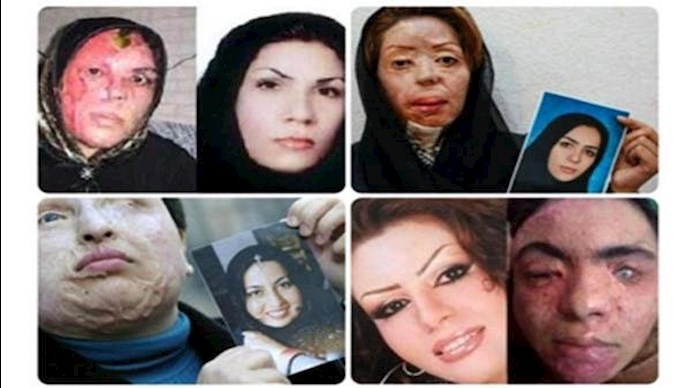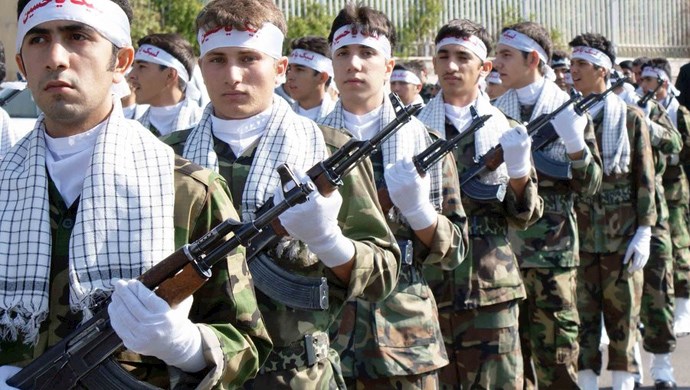Analysis by PMOI/MEK
Iran, October 6, 2020—The past week has seen Iranian regime officials issuing threats and recommending measures that are aimed at the increasingly restive population of the country.
In a meeting with Majid Mirahmadi, the deputy security assistant of the armed forces staff, Yusef Tabatabaei Nejad, the Friday prayer leader of Isfahan called for stricter restrictions against Iranian women, saying, “We should make the society unsafe for the few (mal-veiled women) and not allow them to break the norms in the streets and parks easily… The State Security Forces should be given more authority in dealing with those breaking the law and the norms. We should not be afraid of any hostile action in dealing with the violators.”
Tabatabaei Nejad also gave the greenlight for regime thugs to unleash their hatred and violence and women, saying, “The judiciary must support those who enforce morality rules.”
Meanwhile, Abolghasem Yaghoubi, the Friday prayer leader of North Khorasan, said, “Law enforcement forces must make the lives of rioters who have evil intentions unsafe… Mal-veiling or the refusal to wear a veil act like a virus in society, and we must confront those who do that… In addition to the engagement of the SSF and the judiciary in combatting mal veiling, the people must also get involved and enjoin good and forbid evil. We must also be sensitive to other viruses and not just the Coronavirus.”
The precedent
In October 2014, Mohammad Taghi Rahbar, then-Friday prayer leader of Isfahan, made similar comments and triggered a wave of acid attacks against Iranian women. Rahbar said, “To deal with mal-veiling, verbal reminders are no longer enough. Use of force is needed.” Following these remarks, a series of acid attacks targeted 15 women in Isfahan. Similar attacks happened in Tehran and other cities, where women and girls were targeted by basij and other forces loyal to the regime. None of the perpetrators of these crimes were arrested or tried.

Iranian women victims of acid attacks by basij forces
Orders from regime leaders
Yaghoubi and Tabatabaei Nejad are two high-ranking clerics and the Friday prayer leaders of provincial capitals, and the fact that they both make similar comments on the same day can hardly be considered a coincidence. It is indicative of a policy decided at the highest authority of the regime, supreme leader Ali Khamenei.
On October 5, the state-run Etemad referred to remarks made by both clerics and acknowledged, “The stature of these two is at the level of state spokespersons and what they say might indicate the priorities of the state.”
The question is, will the regime be able to implement such plans in the current explosive state of the Iranian society? And if it does, what will be the consequences?
Therefore, the regime is already on the fence on taking any concrete measure. The hateful remarks of Yaghoubi and Tabatabaei Nejad against Iranian women were met with the outrage of the society. In response the office of Tabatabaei Nejad issued a statement, in which it implicitly backtracked on the remarks, complaining “misinterpretations” and “dissident media taking advantage” of the remarks to spread hate against the regime.
Preparation for more crimes
Regardless of whether the regime carries out with these crimes or not, when seen against the backdrop of other measures made by the state, it is clear that the mullahs are desperate to contain the explosive state of the society.
In this respect, the regime has resorted to the oldest trick in its playbook: Increasing repression against women. In the past week, the regime’s “morality police” has been sending threatening text messages to different people.
At the same time, it is intensifying torture and persecution of political prisoners, especially those who were arrested during the 2019 nationwide protests. A stark example was the execution of wrestling champion Navid Afkari, who was sentenced to death for taking part in anti-regime protests in 2018, and Mostafa Salehi, a worker who was arrested during the December 2017 protests. Other prisoners have been given death sentences or threatened to be executed.
But the regime’s repressive methods are proving to be less and less effective. While the regime hoped that the execution of Afkari and Salehi would cause fear across the society, it had the reverse effect and only caused public outrage and more solidarity against the regime.
Therefore, the regime’s new wave of repression against women is likely to have the same backlash.
The people of Iran have had enough of the regime’s four-decade rule of violence and corruption. As Mrs. Maryam Rajavi, the president-elect of the National Council of Resistance of Iran (NCRI), said in remarks following the November 2019 protests, “The army of the unemployed and hungry, the army of suppressed women, and the army of those who have nothing to lose but their chains, are not going to give in and surrender. They are not thinking of reforming the regime. They are not seeking to charm the State Security Force or the Revolutionary Guards. They want to uproot the entire regime.”
That is not an equation that can be changed with more repression.





